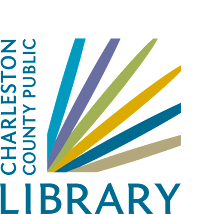The Best We Could Do: An Illustrated Memoir by Thi Bui is an autobiographical, multigenerational story of the immigrant experience. With immigration in the daily news, reading this complex and moving memoir is a timely opportunity to consider the effects of war and displacement on generations of a family as well as the evolving relationships between all parents and children.
Inspired by and in the tradition of graphic novels like
Maus by Art Spiegelman and
Persepolis by Marjane Satrapi,
The Best We Could Do tells the story of Bui's family's immigration to the United States from Vietnam during the 1970s. The narrative moves between the present and the past, with the birth of Bui's son as the center of the narrative, a catalyst for her reflections on family. The book evolved over nearly two decades from a family visit to Vietnam, to an oral history project for graduate school, to a graphic memoir for which she taught herself the art of narrative illustration. With her mother living in a studio apartment in her backyard, her father living four blocks away, and her siblings and their families nearby, Bui was able to include her family in the remembering and the writing of this story.
Bui told interviewer Carly Lanning of
NBC News,
I wrote it from a place of empathy and trying to understand my parents as human beings rather than as just my parents. I’m hoping that translates to readers. This political discourse around immigration is so divisive, and I’m hoping that this story and where it was made from will remind people just to empathize. They’re human beings just like everybody else and I hope that will cut through and remind people that these are human beings we’re talking about, not “others.
What do you think? What historical events are tied to your own family history, and did any of these events influence your family to immigrate to another country? How and when did you first learn of your family's experience? What factors contributed to Bui's parents' decision to leave Vietnam after the war ended? What would you have done in their place? What is the difference between leaving a country voluntarily and being forced to leave your homeland? What are some positive and negative effects of such a dislocation? Bui's cousins in Indiana, who had been in the United States longer than Bui's family, criticize her behavior, saying, "Don't be such a REFUGEE!" What do they mean by this comment? When you hear the word "refugee," what do you think of? How do perceptions of refugees affect their experience? Consider the national and international stories about refugees in the news today. How do they compare to the Buis' experience? What is the difference between being born into a family and creating one? What is the difference between proximity to family and closeness to family? How did Bui's parents' experience affect their relationship with their children? What are Bui's concerns for her own child? What do think Bui is saying with her book's title,
The Best We Could Do? Bui says in her book that she was seeking "an origin story . . . that will set everything right?" Does she find what she was looking for, or something else? How do you feel the graphic novel format Bui chose to tell her story affected its message and the power of its story?
We hope you will join the discussion: Tuesday, August 7, at 6:30 p.m. at Main Library; Thursday, August 16, at 11:00 a.m. West Ashley Branch Library; and here on the blog.

